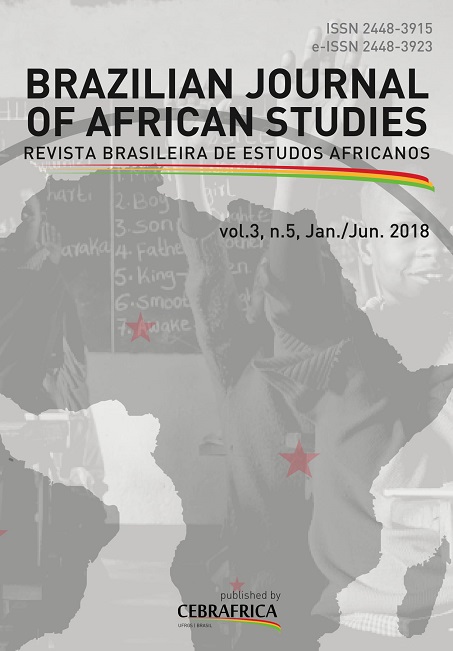POST-CONFLICT PEACE-BUILDING IN A CONTESTED INTERNATIONAL BORDER: THE NIGERIA-CAMEROON BORDER CONFLICT SETTLEMENT AND MATTERS ARISING
DOI:
https://doi.org/10.22456/2448-3923.80746Keywords:
Triangular Process, Post-conflict peacebuilding, GreenTree agreement.Abstract
The objective of this study is to analyse matters arising from the Nigerian–Cameroon border conflict settlement that could jeopardise the “cold peace” between the two countries; issues relating to psychological, socio-economic and political fallouts which the method of settlement of the conflict and its application brought on the indigenes and inhabitants of the Bakassi Peninsula as well as proffer recommendations for lasting peace in this troubled region. In doing this, the study investigates how the process of settlement of the conflict based on the ICJ ruling and the Green Tree Agreement has thrown up more complex issues that encapsulate the interest of the Bakassi people from what should have been a triangular process. The analysis here exposes the damage: psychological, socio-economic and political produced by the peculiar manner in which the method of settlement of the conflict that attached greater importance to the interest of the state parties vis a vis the strategic significance of the Peninsula to the exclusion of its inhabitants. The study brings to the front burner the need for the adoption of an alternative post-conflict peacebuilding approach in the face of the ineffectiveness of the extant approaches in fostering positive peace and sustainable development in the region. It proffers recommendations that would accommodate the triangular interest of the stake holders: Cameroon, Nigeria and the Bakassi people caught in the web in ways that would advance security and development in West Africa. The study adopts the qualitative methods and from it, the historical method in terms of data collection, analysis and presentation. The data collection is based on selected primary and secondary sources. The primary sources include data from oral evidences from fieldwork, newsstudy reports, Focused Group Discussion (FGD) etc. Secondary sources include written sources relevant to the study; policy documents of Bakassi Local Government Administration, books, magazine and journal articles, as well as unpublished works, theses and dissertations, amongst others. Oral data for the study was obtained through in-person key-informant interviews and focus-group discussions (FGDs) held in Akpabuyo Local Government Area of Cross River State, Nigeria, where some of the Bakassi people are presently sheltered and the various communities around the Peninsula. Oral interview with the spokesperson of the displaced people as well as expert groups already working in this area, rights activists and journalist, were also contacted for the purposes of this study. In analysis and interpretation, the study employs theoretical approaches from relevant disciplines such as history, peace and conflict studies, politics and law, applying them to the historical situation associated with the concerns of the study. In presentation, the study combines the chronological, analytical and descriptive styles.
Downloads
Downloads
Published
How to Cite
Issue
Section
License
The author will hold copyright over the published articles and retain publishing rights.

Brazilian Journal of African Studies is licensed under a Creative Commons Atribuição 4.0 Internacional.


